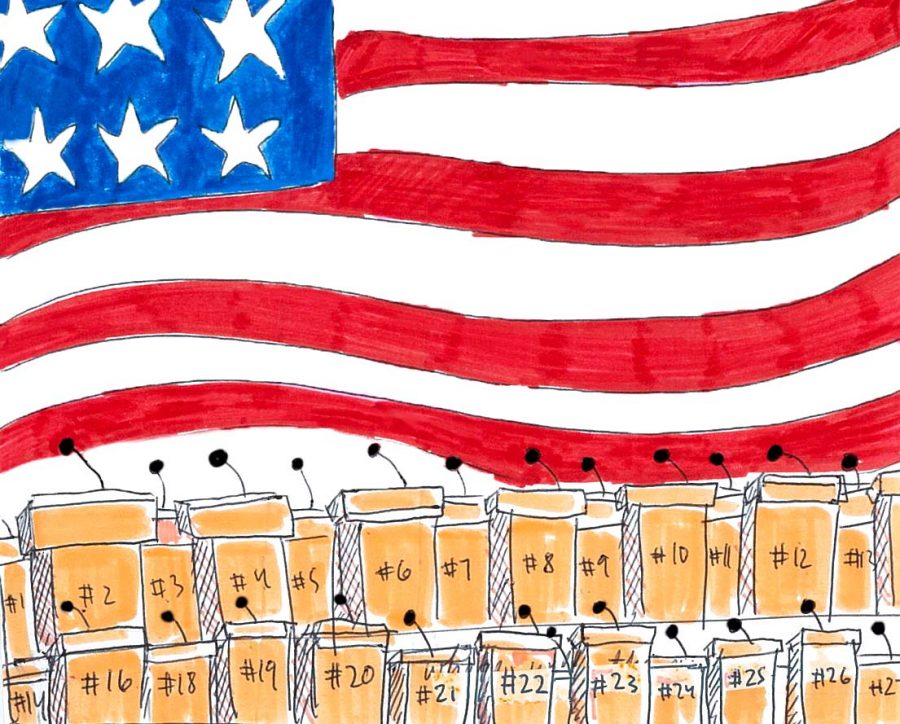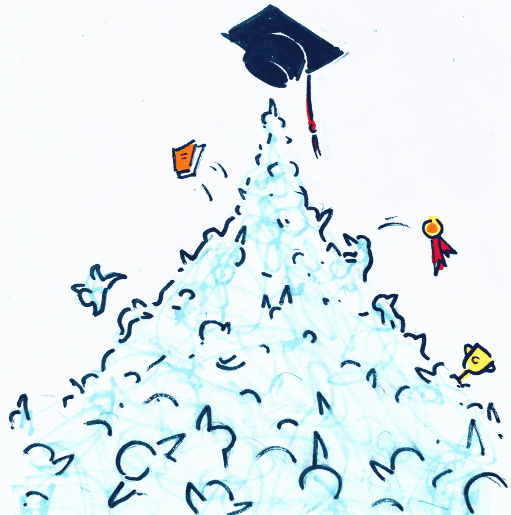The Democratic Debates are Awful: Let’s Fix That
The upcoming 2020 election will be the most consequential in a generation. In the face of a President who dismantles environmental regulations and dismisses climate change; who exacerbates increasing levels of wealth inequality; who sows racial division and is a racist, pure and simple; and who fuels chaos abroad, from Iran and Afghanistan to China and North Korea, Democratic candidates are swarming Iowa and late-night hosts, hoping to be the one to dethrone President Trump. All 20 of them.
I am not alone in thinking that 20 is too many to compare, and sooner or later the Democratic Party will need to unite behind a single candidate. Television debates have long been held to be the best way to whittle down the field and educate the public on what the candidates stand for. I, however, believe they need to be burned to the ground.
There have been three debates so far, two of which were spread over two nights. The first, on NBC, was full of hand-raising, yes-or-no questions, audio glitches, and candidates yelling over one another. Andrew Yang, an internet favorite, got asked just one question and then had his microphone silenced for much of the debate while others yelled over one another.
The second debate, hosted by CNN, was characterized by rapid-fire questions, zero time to respond, and a structure that rewarded candidates for going after one another without making meaningful distinctions between themselves and the candidates they attacked. And the third debate, on ABC, added little to the conversation except for placing the top ten candidates on the same stage for the first time.
There are two things I want to critique here: The first is the formatting of these debates and its root cause, and the second is the Democratic National Committee’s (DNC) quagmire.
All of the past three debates have been hosted by cable news channels and their primetime anchors, interspersed with commercials including, as Senator Sanders remarked during both the CNN and ABC debates, ones by the very pharmaceutical companies the candidates are challenging.
These debates are, above all, commercial ventures meant to make money and create “gotcha” moments, not educate the electorate on who will be the best leader. Proponents argue that the debates need to be on these networks because they have large audiences. But in the age of video streaming and social media, the debates could easily be streamed online for free.
They should be hosted by public news organizations such as PBS or NPR, to avoid conflicts of interest and maximize the benefit to the electorate. Make it so that the questions are asked by academics and public servants, allow moderators to ask as many follow-up questions as they want, and give each candidate a clock like those used by players in chess competitions – they will each have equal amounts of time to speak throughout the debate, and if they want to clock in and interrupt another candidate, they will need to spend less time responding to questions later on in the debate.
Debates need to be above all fair, educational, and hard-hitting. They should also focus on specific issues. Every debate so far has started off the same with the top three candidates – former Vice President Biden, Senator Sanders, and Senator Warren – being asked about their healthcare plans and how they compare to one another. That debate should be had, but not three times over, and we have many more debates coming up. Instead, dedicate an entire debate to nothing but healthcare and see where every candidate stands. Have one on climate change and highlight the candidates who are taking this globe-spanning threat seriously. Have one on immigration, on gun control, on foreign policy, on the economy!
To be fair, the topics are not the networks’ fault, and I cannot believe I am saying this, but CNN gave an honest effort and hosted a forum asking each candidate their plans to deal with climate change and the President’s rollback of essential environmental regulations. Rather, it is the DNC that has voted against having multiple candidates on stage to debate single issues.
The DNC has also set requirements for who can participate in the debates with donor and polling thresholds. On the face of it, these make sense – if you aren’t drawing support now, how will you go up against the GOP’s re-election war machine?
However, candidates are exploiting this requirement to their own advantage. Many are spending significant amounts – around $20 or $30 each – to acquire one-dollar donations. In addition, candidates coming from the House or Senate have a significant advantage over those coming from governorships or outside of politics. The money they have raised in the past for re-election can go right into their campaign coffers, while those who do not hold federal office cannot use that money. And candidates like billionaire activist Tom Steyer have met the October debate requirements by spending millions on acquiring support. I recognize the need to whittle down the field. I just don’t understand what separates former HUD Secretary Castro from Senator Gillibrand or Congresswoman Gabbard – the cutoffs seem arbitrary.
Maybe the status quo is the best we can get, but we must also recognize that the current model, meant to create a more competitive, grassroots primary, has fallen back on the same, age-old separators of money and power.






